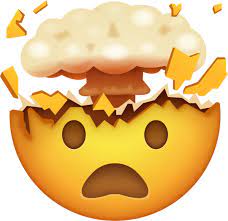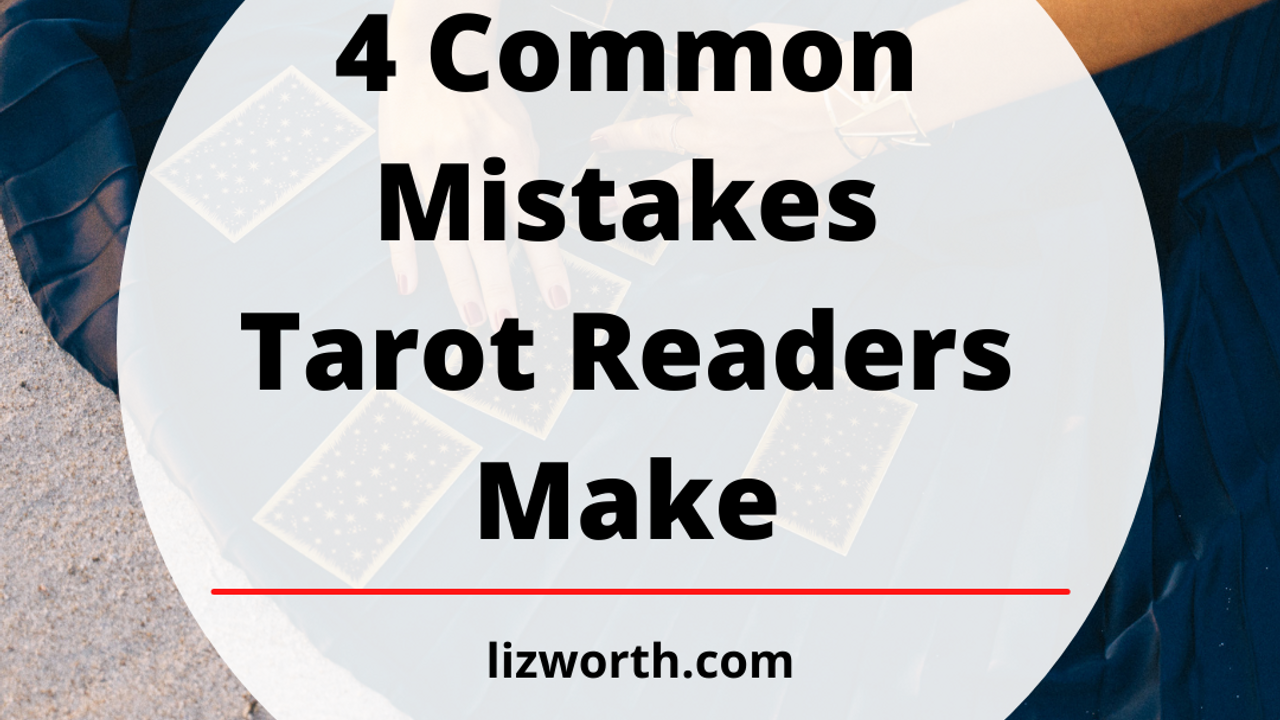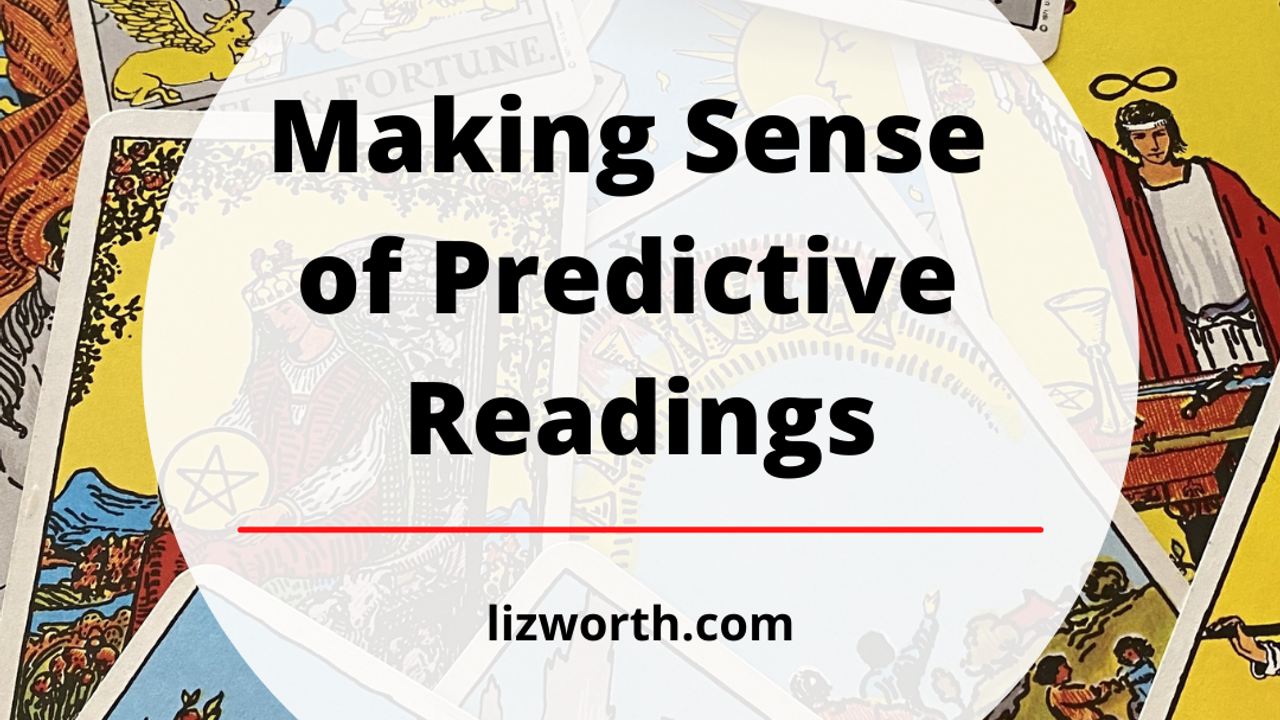I took a survey of tarot readers. What I learned surprised me.

Earlier this year, I was doing some research within the tarot community.
I surveyed tarot readers at all skill levels to find out why they love tarot, and what they most often use it for.
You know what surprised me the most?
Seeing the huge disconnect between what tarot readers use tarot for, versus what tarot clients want and expect in a reading.
What do I mean by that?
I’ve read tarot for over 3,000 people and counting. And you know what the majority of those people have had in common?
They wanted help making decisions.
But when I asked tarot readers what they use tarot for, less than 5% of respondents said they use tarot for decision-making.

So here’s a tip: Tarot clients don’t necessarily think like tarot readers.
I know that not everyone wants to read tarot for other people, and that’s totally fine.
But if you do want to read tarot for others, I strongly recommend developing tarot skills that will help you serve your querents and clients best.
All of what I teach as a...
What if your tarot reading is completely wrong?

Ever tried to predict something in a tarot reading and wondered when it will come to pass?
Or maybe you’ve read tarot for someone else and they really wanted to know the timing of something.
Has that happened to you before?
Does the thought of not knowing make you nervous?
Do you avoid predictive readings so that you don’t have to give a direct answer?
I used worry about these things, too.
And I was often confused about them, because so many people use tarot for predictive purposes, and yet it’s common to be discouraged from using tarot for predictions at all.
“Tarot can’t do this, and it can’t do that.”
But is that true?
I don’t believe it is.
In fact, the very first tarot reading I ever had was a predictive reading – and the messages I was given that day were still coming true 10 years later.
Wild, right?
Of course, this isn’t to say that a tarot reading is a promise or contract: It can be a glimpse at the potential of what’s to come, or what may unfold if you go down...
4 Common Mistakes Tarot Readers Make (That Actually Keep You Stuck)

Let me ask you something: What would it mean for you to become a better tarot reader?
What would you do with tarot?
How would you help yourself, or others?
I want you take a moment to think about your answers.
Now, ask yourself: What’s stopping you from getting to that point?
When people ask me how long it took for me to start reading tarot professionally (seven years), I always preface my answer with this:
There is no one timeline or linear path with tarot. It is an ongoing journey where you can always be learning.
Some people take less time than I did. Some take more. There is no right or wrong, and no perfect amount of time to measure your own progress against.
But there are things that held me back along the way that I do believe slowed me down. Not that I was in a rush to get anywhere with tarot, but if I could have gotten better a little bit faster, I would have taken that option in a heartbeat.
Some of the beliefs that I got stuck on were:
Mistake #1. Doing the same ty...
That time I blew it as a tarot reader

Years ago, before I was reading tarot professionally, I used to do a lot of tarot parties for friends to get practice.
I was at a café one night where a friend was having a trunk sale for a jewelry line she was selling. The room was full of my pal’s friends and family, and I didn’t know many people there.
A woman sat down for a reading with me. I laid down my cards. I saw something in them that was so specific: A story about a family inheritance.
Except that’s not what I told her.
Because what I thought did not match the meanings of the cards that were in front of me.
I wasn’t experienced enough yet to know how to trust myself as a tarot reader.
So I played it safe.
I gave a by-the-book reading – literally – rather than talking about what I’d initially seen.
And it wasn’t exactly wrong. But it wasn’t exactly right, either.
It was generic, safe, and middle-of-the-road enough for this woman to find something relatable in what I was saying.
But it wasn’t specific to what she was...
Are these two things holding you back as a tarot reader?

I remember how disappointed I was when I got my first tarot deck.
I went in with big expectations. I’d always thought of myself an intuitive, perceptive person. I felt spiritual.
And I wanted that connection to something greater – be it the universe, deity, or my higher self.
I was so excited, and a little bit nervous, when I shuffled my cards and started turning them over. I wondered: What would I learn? What would I see in my reading?
I went from excited to crushed pretty quickly. As soon as my cards were laid out, I felt…nothing. Well, that’s not entirely true: I didn’t get any visions or insights because I had no idea what to make of the cards in front of me.
But I did feel a mix of disappointment, confusion, and insecurity. That insecurity was directed towards myself: What if I’m not the spiritually connected, intuitive person I thought I was?
What if I’m just not cut out for tarot?
I know that sounds dramatic, and it is. I had gone into tarot with such high expectations, a...
Can you learn tarot through social media?

Can you learn how to read tarot by watching other readers on YouTube?
Or by picking up tips through Instagram posts?
Or by watching 30-second TikTok tutorials?
I pose the question because it’s something I’ve been sitting with a lot this year.
I’m part of the last generation that grew up without the internet. We had landlines, answering machines, cassette tapes, CD players. Barely anyone I knew had a home computer when I was in high school.
But it was becoming cool to get one, along with a Hotmail account. But people still mailed letters, applied for jobs in-person or over the phone, and – thank the gods – none of us had our adolescence documented from start to finish on social media.
When the internet was catching on, it was exciting. I loved the idea of being to talk to anyone, anywhere, at any time.
Growing up as a teen in the suburbs made it harder for me to find information about tarot. I had to make-do with the limited resources I could get at the mall bookstore, or the lib...
Can we talk about reversals in tarot?

To read reversals, or not read reversals: That is the question.
At least for a lot of tarot readers out there.
It’s come up in every tarot class I’ve taught, and I often see minor dust-ups online between tarot readers about whether reading reversals matters or not.
Some might find it hard to believe that tarot has controversies, but it does.
However, I’m not of the opinion that there is a right or wrong answer here.
First, for those who aren’t familiar with reading reversals, it’s a technique that allows for reading a tarot card upside down.
This technique is deck-dependent to some extent. It can depend on the artwork of your deck.
Or on the type of deck altogether. If you’re using Tarot de Marseille, playing cards, or even oracle cards, reversals may not factor in at all.
I used to read reversals. But then I stopped.
Why? Because my tarot reading style had changed, and I got to a point where I no longer needed them. As I got more influenced by other types of cartomancy, I st...
How to Make Sense of Predictive Readings

Predictive questions are some of the most common and popular types of tarot readings.
Especially if you read tarot for friends, family or clients. Mainstream perceptions of tarot are strong when it comes to connecting tarot to fortune-telling, or future-telling.
While some tarot readers prefer to avoid predictive readings altogether, there can be a time and place for them. And personally, I’ve done a ton of predictive readings for myself and others over the years.
Even though I do believe we can shape our futures and change our directions, there is still something helpful about getting a sense of where things are headed.
But it’s not always easy to get a clear prediction, or to make sense of what we’re seeing in our cards if we’re doing a future-oriented reading.
Here are some of the guidelines I follow when I’m doing predictive readings:
1. First, whenever I talk about predictions in tarot, I’m clear that I’m not looking for things names, dates, or places. I believe that tarot can...
How I deal with skeptics

For simplicity’s sake, I am using “spirituality” throughout this post as an umbrella term to encompass a range of practices, tarot to astrology to religion and everything in between.
Someone asked me recently, “How do you deal with skeptics?”
I shrugged. “I don’t, really.”
I don’t, as in: I don’t argue with them, or try to change their minds.
But I also don’t let it get to me. I don’t own tarot, or other spiritual pursuits. I can defend my beliefs, but there is no threat to them just because someone doesn’t participate in the same things I do.
I also remind myself that skepticism is a belief system itself, too. So no matter where we are coming from, we must be mindful to cultivate acceptance of other viewpoints.
Meaning that I don’t expect everyone to think the way I do. Each of us has the right to choose the path and perspective that feels best.
Skepticism has a spectrum and comes in many forms. It’s not always an all-or-nothing mindset rooted in science vs. spirit.
Even...
Breaking free of the greatest tarot myth of all

There are tons of tarot myths out there.
But don’t believe everything you hear.
Because it’s not all true. And not everything you hear about tarot is helpful, either.
You want to know which myth I wish would disappear?
The belief that tarot readings have to complicated in order to be accurate.
There is something within our human nature that likes it when things feel hard.
So we go for the really complex, multi-layered tarot spreads.
Or we search for overly complicated tarot techniques, believing that that is where the answer to life’s mysteries exists.
Life is complicated enough.
Tarot doesn’t have to be.
I truly believe – no, I know – that the most powerful tarot readings don’t come from complicated techniques or approaches.
In fact, I think that the more convoluted tarot gets, the harder it can be to get to the heart of the answer you’re seeking.
I always come back to three main principles in my card readings:
- What is the question?
- What is the context?
- Which cards ...
